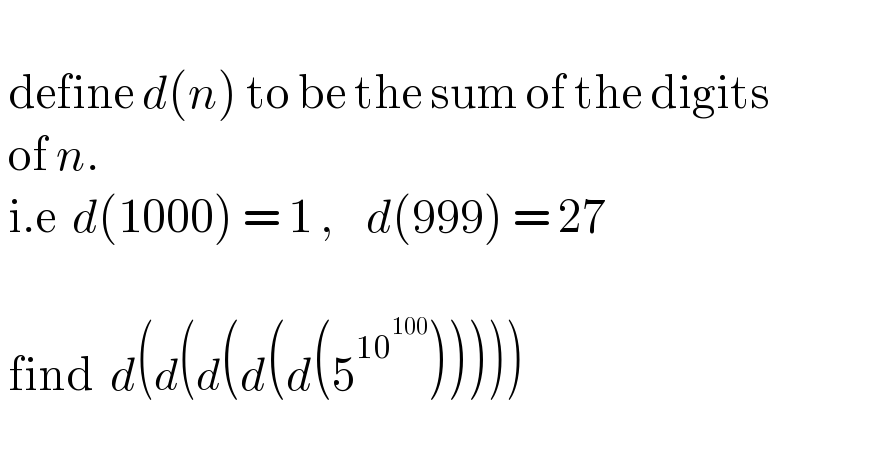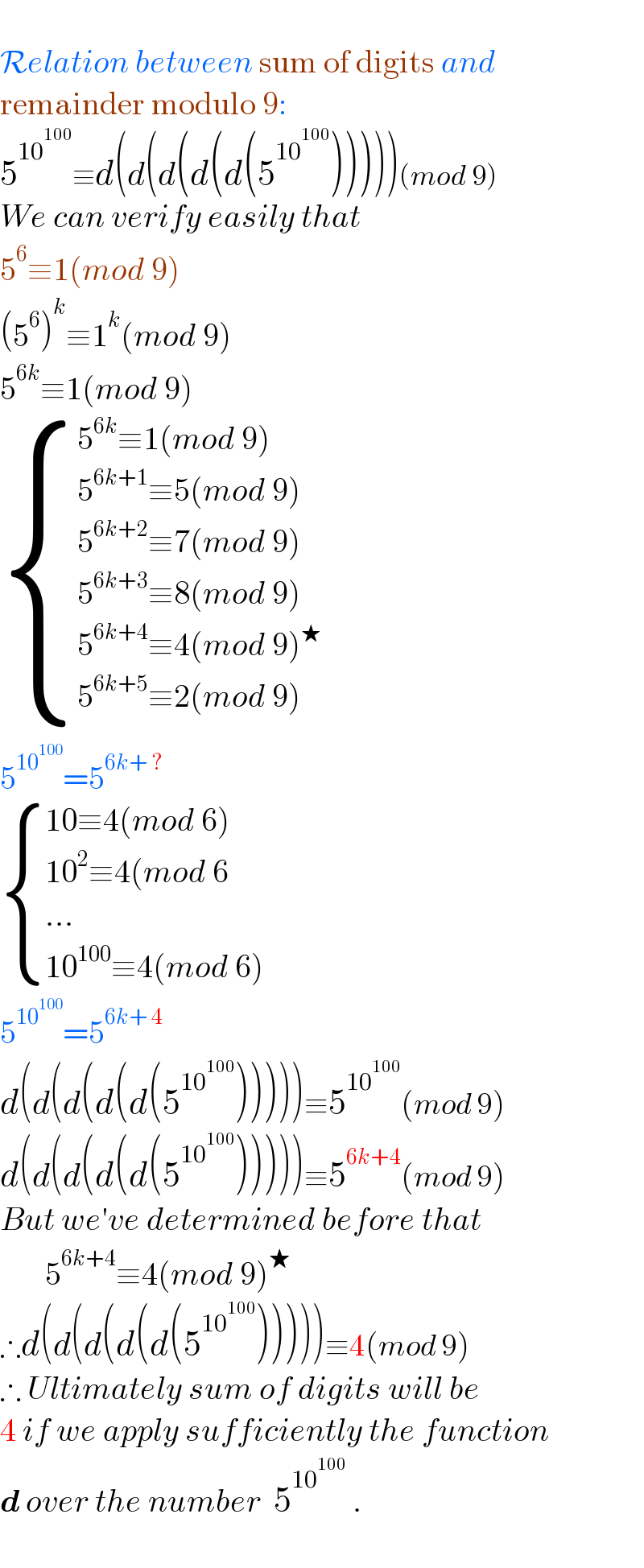
Question and Answers Forum
Question Number 153565 by talminator2856791 last updated on 08/Sep/21

Commented by Rasheed.Sindhi last updated on 08/Sep/21

Commented by talminator2856791 last updated on 08/Sep/21

Commented by Rasheed.Sindhi last updated on 09/Sep/21

Commented by talminator2856791 last updated on 09/Sep/21

Answered by Rasheed.Sindhi last updated on 10/Sep/21

